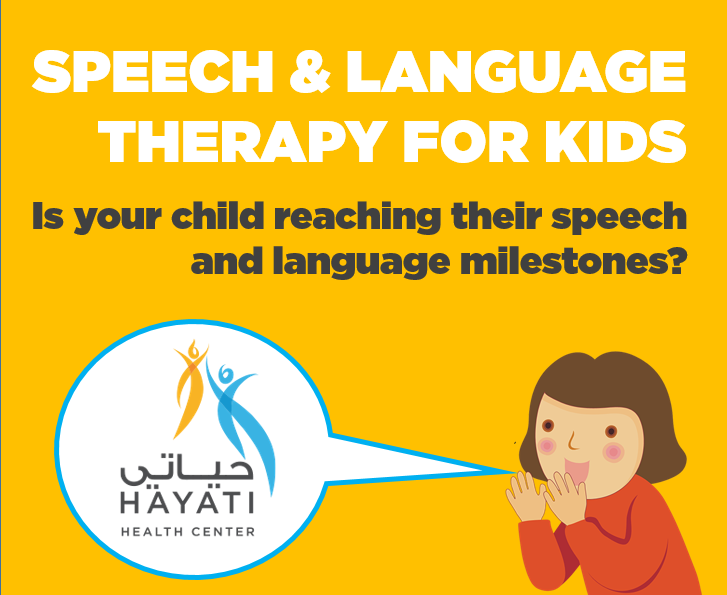The Case for Speech Therapy with Children

If a child does not reach developmental milestones on schedule, it does not necessarily mean a problem. However, a child's failure to reach certain milestones as expected may be a "red flag" or warning. He or she should be evaluated by a health professional such as a speech pathologist.
Fortunately, these evaluations by a SLP are entirely non-invasive, so there's no reason to avoid them because, according to the American Speech-language and hearing association (ASHA), these impairments can negatively affect a child's learning functions:
Children with communication disorders frequently do not perform at grade level. They may struggle with reading and have difficulty learning to listen, speak, read, or write due to problems in language development. Problems can occur in the production, comprehension, and awareness of language sounds, syllables, words, sentences, and conversation. They may have difficulty understanding and expressing language, misunderstand social cues, avoid attending school, show poor judgment, and have difficulty with tests.
Red flags for language development
Many warning signs might indicate the need for you to google ‘speech therapist near me’. Remember, an evaluation by a qualified language therapist is a good idea in any case, simply as a regular part of a child’s growth.
Here are some of the more usual indicators that a visit to an SLP is warranted. As the child gets older, some of the signs might be more obvious.
By 12 months:
Does not point to objects
Doesn’t respond to her/his name
Does not use gestures such as waving or shaking their head for “no.”
Doesn’t babble with changes in tone-e.g. dadadadadadadada
By 15 months:
They have not used their first word (this can be a word approximation such as “buh” for “ball” or “do” for “doggie”)
Doesn’t point to objects or pictures when asked, “Where’s the..?”
Does not respond to words such as “no” and “bye-bye” appropriately
By 18 months:
Does not use at least six to ten words consistently
Doesn’t understand simple commands like “Don’t touch.”
They do not appear to hear well or discriminate between sounds
By 20 months
They don’t use at least six consonant sounds (especially /p, b, m, n, w, h/)
They do not follow simple directions such as “come here,” and not just when frustrated.
By 24 months (2 years)
Has a vocabulary of fewer than 100 words
They are less interested in social interactions compared with previously
Doesn’t pretend with toys, such as feeding a doll or making toy man drive a toy car
Doesn’t imitate actions or words
By 3 years:
They are understood by family or caregivers less than 50% of the time
They can’t produce vowel sounds (a, e, i, o, u) and/or the consonants (p, b, m, and w) in words
They get overly frustrated when they’re asked to repeat themselves so others can understand them and sometimes even refuse to continue talking
By 4 years:
Cannot be understood by family/strangers more than 75% of the time
Cannot correctly produce t, d, k, g, f
Cannot be asked to repeat without becoming sensitive
By 5 years:
Cannot be understood in all situations by most listeners
Cannot correctly produce most speech sounds
Cannot be asked to repeat without exhibiting frustration
Any age:
Family, friends, and/or caregivers find it suddenly harder to understand the child.
Produces no meaningful words or sounds that are understood only by family
Their speech is slurred, or they have difficulty controlling their breathing for speech
Sound errors are prevalent but variable (i.e., “dog” could be produced “dog,” “tog,” “gog,” “god” by the same child)
They speak loudly in a high-pitched voice (and not just when imitating a TV character)
They go from barely being able to produce sounds to speech that is barely understood or speech that is usually understood with frequent sound errors
They are unaware of sound variations or show frustration and/or anxiety about their seeming inability to control their speech
Exhibits frustration and/or avoids talking due to difficulties
If you have any questions about your child’s vocal development, give us a call or email info@hayatihealth.com! There are many excellent speech-language pathologists in Dubai and Abu Dhabi. At Hayati Health Center, we’re proud to have one of the best of those at our child development center in Dubai.
If you’re interested in finding out more about child speech therapy in Dubai, arrange an appointment with our SLP Sneha Kothari and let’s get started on your child’s journey early. The earlier an impairment is identified, the better the outcome!








